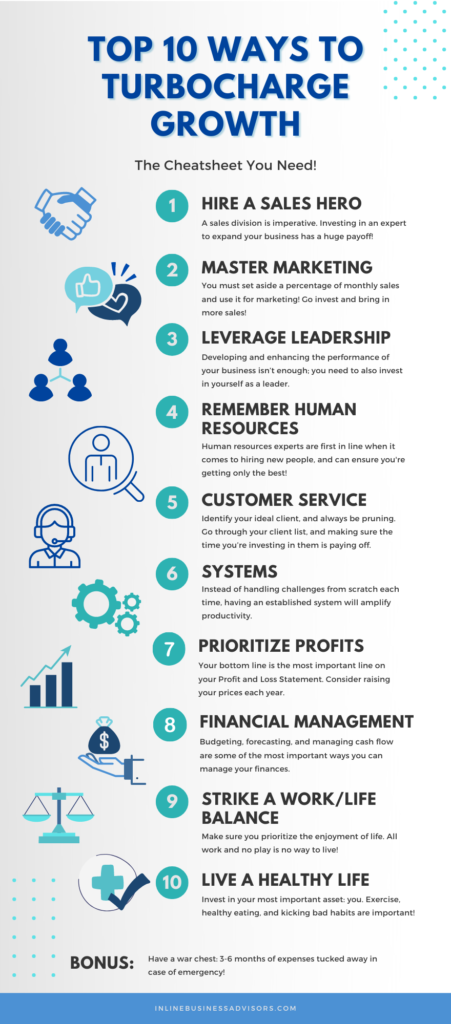As a small business owner, you’re no stranger to the trials and tribulations of entrepreneurship. But even the most seasoned among us could not have anticipated the economic turbulence we’ve faced over the past few years. On February 27, 2023, US Treasury Secretary Janet Yellen acknowledged the harsh reality that has seeped into our lives: from the gas pumps to the grocery aisles, inflation is here, and it’s hitting businesses hard.
In an exclusive interview with CNN’s Melissa Bell from Kyiv, Yellen offered a glimmer of hope, suggesting that the Federal Reserve’s efforts could lead to a soft landing. But for many of us, that hope is overshadowed by the daunting challenges of ongoing crises: the war in Europe, lockdowns in China, and new strains of COVID disrupting the supply chain and sending prices skyward.
As global citizens, we cannot escape the fallout of these events, but we can take action to protect our livelihoods and the businesses we’ve poured our hearts into. In this blog post, our goal is to provide you with a roadmap to not only buffer yourself and your business against these harsh realities but also to emerge stronger and more resilient than before. Because, at the end of the day, it’s not just about survival—it’s about thriving and creating a better future for ourselves, our families, and our communities.
What is Inflation, and How Does It Impact Small Businesses?
Inflation, in its most basic form, is the increase in the average price level of goods and services over time. It is a natural part of any economy but can become problematic when it accelerates too quickly or remains at high levels for an extended period. In times like these, small business owners must understand how inflation impacts their operations and the strategies they can employ to mitigate its adverse effects.
When inflation rises, purchasing power diminishes, meaning the same amount of money buys fewer goods and services. This erosion of purchasing power has far-reaching consequences for small businesses, as it affects both their costs and revenues. Let’s delve deeper into these two key areas:
- Rising costs: As a small business owner, you’re no stranger to the delicate balancing act of managing expenses. High inflation raises raw material, labor costs, straining tight budgets. In turn, you may be forced to make tough choices: cut staff, lower quality, or raise prices due to rising costs.
- Reduced revenues: On the flip side, inflation can also take a toll on your revenue. When prices rise, customers may be more hesitant to spend, leading to lower sales and, ultimately, decreased profits. If prices don’t adjust to inflation, profit margins suffer, risking financial instability.
Is Inflation Good or Bad for Business?
The effects of inflation on small businesses can be complex and nuanced, with both positive and negative aspects. The impact of inflation on your business will largely depend on circumstances and adaptability to change. Let’s explore how inflation can be both good and bad for businesses.
The Good:
- Increased revenues: When managed effectively, a moderate level of inflation can lead to higher revenues for businesses. A raise in prices may yield higher profits if costs don’t increase disproportionately.
- Easier debt management: Inflation eases debt burden by decreasing real value over time. This can be especially beneficial for small businesses with long-term loans, as the cost of repaying those loans becomes relatively smaller as inflation erodes the purchasing power of money.
- Improved competitiveness: Flexible businesses adapting pricing and costs during inflation gain competitive advantage. By staying ahead of inflationary trends, these businesses can maintain their profit margins and even grow their market share.
The Bad:
- Increased costs: One of the primary adverse effects of inflation on businesses isincreased input costs like raw materials, labor, and rent. These rising costs pressure profit margins, forcing price increases or expense cuts.
- Reduced consumer spending: High inflation often leads to reduced consumer spending, as people become more cautious with their money. This can decrease demand for goods and services, negatively impacting businesses’ revenues and growth potential.
- Uncertainty and volatility: Inflation can create an uncertain and volatile business environment, making it difficult for businesses to plan for the future. This uncertainty can hinder long-term decision-making and investment, ultimately stifling growth and innovation.
In other words, inflation’s impact depends on situation and mitigation strategies. Warren Buffet emphasizes understanding inflation and effective management. Strategies help navigate uncertainty, fostering entrepreneurial resilience and adaptability.

How to Survive Inflation as a Small Business: Strategies and Tips
Thriving in an inflationary environment requires adaptability, resilience, and strategic thinking. Here are some practical strategies and tips to help your small business successfully navigate the challenges posed by inflation:
Avoid taking on new debt
Resist the urge to apply for a new business credit card or increase your business’s line of credit this season. Inflation eases existing debt but exercise caution considering new debt in high inflation. Higher interest rates often accompany inflation, increasing the cost of borrowing and making it more challenging to repay loans.
Increase efficiency
Efficiency is vital during times of inflation. Look for ways to streamline processes, optimize workflow, reduce waste, and automate repetitive tasks where possible. Invest in technologies for productivity, reducing labor costs, and freeing time to achieve more with less.
Control costs
During periods of inflation, keeping a close eye on your business expenses is important. Reduce costs via better supplier deals, cutting unnecessary expenses, and cost-effective production methods. Consider outsourcing tasks or hiring freelancers rather than hiring full-time employees who may require higher wages and benefits.
Adjust your pricing strategy
Adjust pricing to maintain profit margins, despite challenges passing full cost increases to customers. This may involve implementing price increases, offering discounts for bulk purchases, or introducing tiered pricing structures. Consider implementing a price increase gradually, rather than all at once, to ease the impact on customers. Ensure any changes you make are well-communicated to your customers and justified by the value you provide.
Focus on customer retention and acquisition
Retaining existing customers is often more cost-effective than acquiring new ones, especially during economic uncertainty. Prioritize exceptional customer service, invest in relationship-building, and offer loyalty incentives to encourage repeat business.
At the same time, utilize digital marketing to target and attract new customers. Digital marketing targets specific customers, efficiently and cost-effectively. This is crucial during inflation. Leverage social media, email marketing, and search engine optimization (SEO) to reach a wider audience and showcase your business’s value.
Keep a close eye on the cash flow
Maintaining healthy cash flow is crucial to weather the storm of inflation. Monitor cash flow, reduce expenses, and stay on top of receivables to cover rising costs. You may also want to consider outsourcing tasks or hiring freelancers rather than taking on full-time employees. This can be a more cost-effective option in the long run.
Forge strategic partnerships with suppliers and other business partners
Negotiate with suppliers for inflation-adjusted terms like bulk discounts, extended payments, or price lock-in contracts. Partnering with other businesses, particularly those in complementary industries, can provide opportunities to share resources and expertise. For example, you might consider collaborating on marketing campaigns, sharing warehousing or shipping services, or jointly investing in new technologies to improve efficiency.
Innovate and adapt
Inflation can present opportunities for businesses willing to think outside the box. Consider introducing new products or services that cater to changing customer needs, or explore alternative revenue streams, such as online sales or subscription-based models. This can increase revenue and provide a buffer against inflation in your core business.

How Can My Small Business Cope with Inflation: Financial Management
Effectively managing your finances is crucial for navigating inflation as a small business owner. Here’s how you can maintain control over your business’s financial health and adapt to changing economic conditions:
- Monitor and update financial projections regularly: Inflation can significantly impact your business’s financial outlook. To stay ahead of the curve, keep a close eye on your financial projections and update them regularly to account for changes in costs, revenues, and other variables. This will help you make informed decisions, anticipate challenges, and identify growth opportunities.
- Adjust budgets and spending plans: As inflation affects your costs and revenues, it’s necessary to review and adjust your budgets and spending plans accordingly. This might involve reallocating resources to areas that require additional investment, cutting back on non-essential expenses, or prioritizing projects with the highest potential return on investment. Regularly reviewing and updating your budgets will ensure your business remains agile and responsive to the shifting economic landscape.
- Secure financing options to support growth during inflation: While taking on new debt during inflation can be risky, it’s still important to explore financing options that can support your business’s growth. Consider applying for grants or leveraging crowdfunding platforms to ensure your business has the resources it needs to capitalize on opportunities and weather the challenges of inflation.
Consider seeking professional financial advice: Navigating inflation can be complex and challenging, particularly for small business owners who may not have extensive financial expertise. If that’s you, seeking professional financial advice can be invaluable. A financial advisor or accountant can help you develop tailored strategies to manage inflation’s impact on your business, identify potential risks and opportunities, and ensure that your financial plans are aligned with your long-term goals.

Final Thoughts
Inflation can be a challenge for small businesses, but it’s not insurmountable. Survive and thrive during inflation by controlling costs, adjusting prices, diversifying products, increasing efficiency, and building relationships. Adapt to your unique business needs, embrace challenges as opportunities, and stay committed to improvement. Resilience, adaptability, determination, and strategic thinking can help your small business emerge stronger and more competitive.
Finally, we understand that having the right resources and support can make all the difference. That’s why we invite you to download our exclusive, free PDF resource, designed to help small business owners like you overcome the challenges you face every day. This valuable guide is more than just a collection of tips—it’s a treasure trove of insights and inspiration crafted with the passion and understanding only fellow entrepreneurs can provide. This invaluable resource is our gift to you as we stand together in our commitment to the success of small businesses. Click here to access your free PDF resource and take the first step toward a brighter future for your small business and community.

Larry Vivola is a successful business coach who coaches entrepreneurs anywhere in the world via Zoom. If he’s not coaching he’s making meatballs and entertaining friends and family!
Free Advice Sucks! Invest in a one-time strategy session and pick Larry’s brain to help solve a pressing problem, discuss an idea, or brainstorm how to give your business performance a Turbo Boost!!! In the end your investment will yield you more money, time, and happiness!

